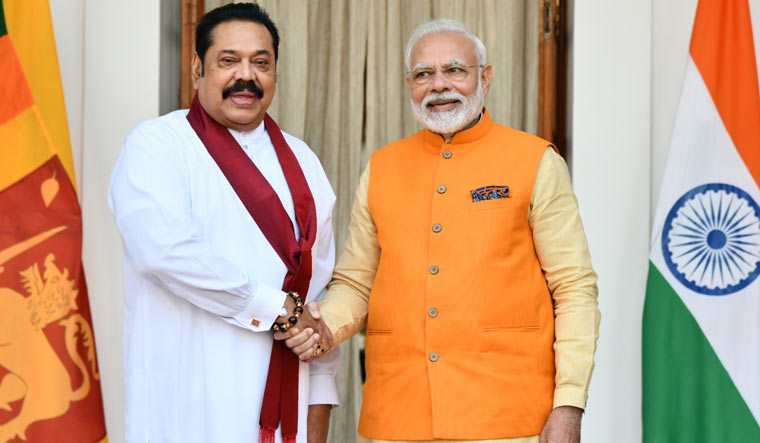_Vinayak Barot
New Delhi: The unbearable financial burden of China on Sri Lanka – damaged its economy in the last few years. After facing problems in repayment of loans to China – the Colombo government turned toward India and invited the Indian investment in the island country.
Sri Lankan Finance Minister Basil Rajapaksa held talks with External Affairs Minister S Jaishankar on Saturday and discussed projects and investment plans by India that would strengthen the economy of the island nation.
During the meeting, both ministers noted that the recent steps taken by Sri Lanka for jointly modernizing Trincomalee Oil Tank Farms – will boost the confidence of investors, apart from enhancing Sri Lanka’s energy security, it added.
According to India-based international political experts – India’s extension of $400 million to Sri Lanka under the SAARC currency swap arrangement and deferral of A.C.U. settlement of $515.2 million by two months is the key assistance in the current Sri Lankan foreign currency shortage situation.
In recent months, the public has experienced a shortage of many essentials due to the foreign exchange crisis. Import restrictions to save dollars have threatened cooking gas and fuel supplies in addition to the looming power cuts.
Earlier this month, Sri Lanka signed an agreement with India to jointly redevelop the strategic World War II-era oil tank farm in the island nation’s eastern port district of Trincomalee, in a new milestone in bilateral economic and energy partnership.
According to Central Bank Data – Sri Lanka had about $3.5 billion in debt from China by the end of 2020, excluding loans to state enterprises.
The possibility of a new loan comes after President Gotabaya Rajapaksa asked Chinese Foreign Minister Wang Yi last weekend for Beijing to consider restructuring debt repayments.
The government has been reaching out for bilateral funding as Sri Lanka’s finances have nosedived since the pandemic, with its key foreign exchange-earners of tourism and remittances hit. The country maintains a deep-seated reluctance to seek help from the International Monetary Fund as that would involve austerity measures.
However, Jaishankar conveyed that India has always stood with Sri Lanka and will continue to support Sri Lanka in all possible ways for overcoming the economic and other challenges posed by the COVID-19 pandemic. The maritime neighbors, India and Sri Lanka stand to gain from closer economic interlinkages.
Top economist and former Sri Lankan Central Bank Deputy Governor WA Wijewardena last week said that India’s economic package has given Sri Lanka some breathing space, tough measures, including a bailout from the International Monetary Fund (IMF) – was needed to prevent the economy from heading into a perpetual tailspin.
Sri Lanka is facing its all-time worst foreign exchange crisis after the pandemic hit the nation’s earnings from tourism and remittances. By December, the reserves position had plummeted to just one month’s imports or a little over USD 1 billion.

